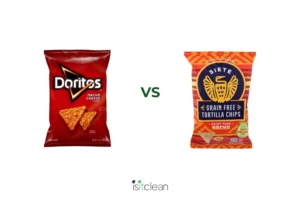
Acesulfame potassium is a zero-calorie sweetener that is added to many sugar-free…



Cumin is a spice derived from the seeds of the Cuminum cyminum plant, a member of the parsley family. The production of cumin for use in food involves harvesting the seeds from the plant’s fruit, which resembles a small elongated capsule. After harvesting, the seeds are typically dried and ground into a fine powder or used whole. Cumin is used in many global cuisines, adding a warm, earthy flavor to dishes such as curries, stews, and spice blends.

Cumin is rich in bioactive compounds and is associated with various health benefits, including improving body composition, improving lipid profile, reducing oxidative stress, and potentially even helping prevent cancer.
Health is like a bank account, certain ingredients make a deposit into your health bank, meaning they add to
your health. Certain ingredients withdraw from your health bank. We want health promoting ingredients in our diet. To keep things simple, we rate ingredients on a green, yellow, red scale:

It is naturally occurring in food and has no harmful effects on the body. It is real food. It is health promoting.

It goes into one or more of the below categories

It is known to have a harmful effect on the body (ex. All food colorings, Natural Flavors, MSG, Potassium bromate, aspartame, artificial flavors)



The Food Showdown: Popcorners flavors
Ingredient Rating: Canola oil – is it bad for you?
Clean Consuming: Nourishment for your

We have accomplished so much in just 1 year since our launch in March of 2023! We now have 10,000

The Nacho Chip Food Showdown, is Tapioca Starch safe in food? and a must-see documentary on America’s food system.
Stay in the know with the latest ratings, articles, and our newsletter, The Dirt.